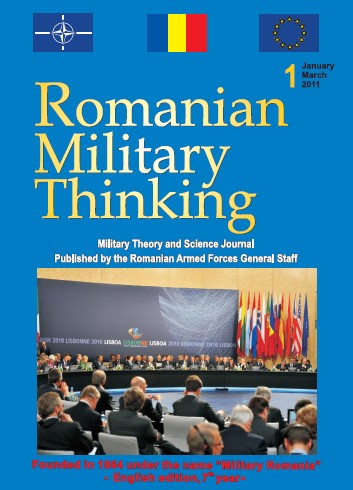THE SENSE AND SIGNIFICANCE OF STRATEGIC COMMUNICATION WITHIN THE MILITARY
THE SENSE AND SIGNIFICANCE OF STRATEGIC COMMUNICATION WITHIN THE MILITARY
Author(s): Vasile Iulian AlistarSubject(s): Security and defense, Military policy, Theory of Communication
Published by: Centrul tehnic-editorial al armatei
Keywords: action planning; decision-making factors; StratCom; information strategy; terrorism;
Summary/Abstract: In the complex environment of military operations and missions, the role of activities regarding dialogue, information and communication is highlighted by NATO in a complex action developed from the concept of strategic communication (StratCom). In its theoretical and operational dimension, StratCom is a process meant to counter hostile information flows, it is a fair, timely and proactive way of projecting military operations and actions in front of local, regional and international audiences and an analysis and planning tool within the comprehensive approach to security. Within the Alliance, as well as in the United States, the development of the concept has its own history, beginning in 2007, when NATO Secretary General Jaap de Hoop Scheffer, under the pressure of events in Afghanistan, discussed the need for improving the capabilities that come in support of communication and called for the development of an action plan regarding NATO’s strategic communication.
Journal: Romanian Military Thinking
- Issue Year: 2011
- Issue No: 1
- Page Range: 169-174
- Page Count: 6
- Language: English

